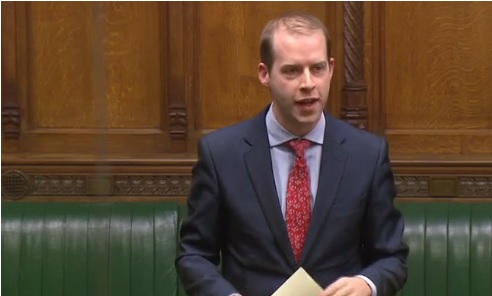The government’s Energy Bill has been heavily criticised by opposition MPs during its second reading in the House of Commons for its failure to include new energy efficiency measures.
As ministers debated the bill during last night’s session, a number of Labour MPs used the opportunity to condemn the legislation for its failure to include any new policy in this area. Jonathan Reynolds, who recently resigned from the Labour frontbench, used the closing statements of his speech to “lament the issues and the sectors that have been missed.”
“The government’s record on energy efficiency is frankly abysmal. It has cost thousands of jobs, made fuel poverty worse, made bills worse and has hindered our ability to tackle climate change. Whatever form of generation people favour—there are cases for different forms and there is certainly a need for a mix covering almost everything—such generation will be expensive, and I would say that not getting the most efficient use of energy we already have is a scandal,” he said.
Matthew Pennycook, who sits on the energy and climate change (ECC) select committee, added his voice to the criticism and said: “It is deeply regrettable that the bill is completely silent on the need to reduce energy demand.
“If ever there was a chance to make energy efficiency an infrastructure priority, which it needs to be if we are to solve the trilemma and meet our emissions targets, this was it. It is sad that the bill, which could have done so much more, does not do so, as it stands.”
Their concerns over the lack of energy efficiency policy within the bill were supported by Alan Whitehead, a former member of the ECC select committee who now sits in the shadow DECC team, and Mary Creagh, who claimed average energy bills had increased by over £100 between 2010-15.
Creagh also pointed to the government’s current advice to consumers that switching tariffs was the best way to cut energy bills, claiming this is “simply not enough.”
Labour’s criticism of the bill was further supported by Caroline Lucas of the Green Party, who had tabled a reasoned amendment to have the bill refused a second reading for a number of reasons, including the lack of provisions on energy efficiency.
Speaking last night in the House of Commons, Lucas said: “The bill is unfit for purpose because of what it leaves out. It contains nothing on energy-efficiency, fuel poverty, community ownership or maximising the economic energy security and employment contribution of home-grown renewables.”
Energy minister Andrea Leadsom failed to respond to these concerns during her closing remarks, while DECC’s secretary of state, Amber Rudd, claimed in her opening statement that her department was aware more action needed to be taken on energy efficiency. She added that an emissions reduction plan will include details of this policy approach by the end of the year.
Since the Conservative majority was elected in May, a raft of energy efficiency schemes have been removed including the Green Deal and zero carbon homes policy which would have built measures into new build properties.
DECC failed to provide comment today on this criticism at the time of publication.






